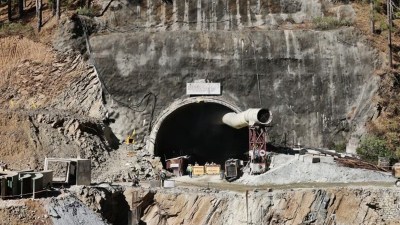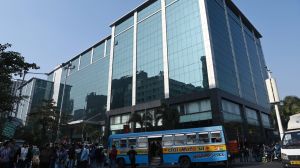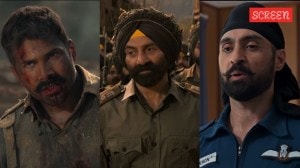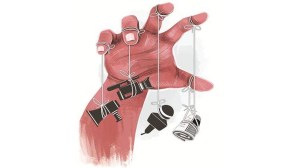Life King-Size
In Gujarats Dangs district live the poorest royals of India,who till their own fields and struggle to send their children to schools
Dhanraj Singh Suryavanshi wakes up at 5 am and has a cup of tea. He fills a bucket with water from a hand-pump and takes a bath in the open. He harnesses his bullocks and heads to his fields for a long day of labour. Fifty-eight-year-old Dhanraj Singh Suryavanshi is the king of Vasorna,a territory of 63 villages in Dangs,Gujarats 100 per cent tribal district.
Through the year,Dhanraj tills the field with the help of his elder sons. He returns to a dung-plastered home and a meal cooked by his wife. Later in the evening,he visits the village to meet people and listen to their problems. This is the daily routine of all five Dangs kings. We dont have enough money to keep servants and we live like any other tribal. There is nothing royal about us, he says.
The trappings of royalty return only during Holi. A few days before the biggest festival of the tribals,the district organises the Dang darbar at Ahwa town,where the kings sit on a stage and receive a political pension from the government,a sum proportionate to the size of their kingdom. The privy purses of all former royals of India were abolished by the 26th Constitutional Amendment of India,1971,but these grants continue. The amount was decided in 1948,depending on the forest land the kings owned. Last year,the state government increased their pension by 25 per cent.
The tradition dates back to the time of the Empire. The Bhil kings of Dangs fought bravely against the British army to protect their homeland and forests in the 19th century. When the British realised that they could not defeat the kings,they struck a deal. In exchange for rights to the forest land,they gave an annual remuneration or nazrana to the kings. After Independence,the Indian government continued to pay the kings. But they no longer have unchecked rights to the dense teak forests of their land. They are permitted to cut only 10 trees a year which they sell in the market. Dhanraj gets a monthly pension of Rs 4,775,while Kiran Singh,the king of Gadhvi,who owns 153 hectares of forest and agricultural land,gets Rs 8,000 a month.
Bhavar Singh Suryavanshi,the 50-year-old king of Lingah,lives in a joint family with his four brothers and their families. In 1984,he succeeded his father as the king of Lingah,which has 115 villages. As the eldest son,he is responsible for the entire family. He proudly tells you that he is a Class VII dropout from an English medium school. He distributes his monthly pension of Rs 6,000 that he gets from the government equally among his brothers. I dont get money or taxes from the villagers,we just have the tag of a king. Life has become difficult as our family is growing bigger and we have a limited source of income, he says. His grandfather Pratham Singh Sattar Singh was one of the kings who had fought and kept the British army at bay.
The king of Pimpri,Trikamrao Sahebrao Puwar,lives under one roof with a huge family of 62 members. Trikamrao,45,rules over 63 villages and gets a monthly pension of Rs 6,500. We live in huts and eat simple food. We dont have the money to live lavishly or give our children an English education. During our visits to different villages in our territory,we sometimes feel ashamed,when young children tell us how they had read in their books about kings living in palaces, he says.
The earlier generation of Dangi kings lived in mud houses,but kept an army to protect their territory. Villagers worked in agricultural fields owned by kings and paid them taxes. They had a say in the sale of teak wood and medicinal herbs from their forests. All exchange was through a barter system; they did not have any currency. Their lifestyle was not extremely luxurious but they had great respect. The kings of Daher,Lingah,Vasorna have preserved the swords of their great-grandfathers and the arms they used during wars. Today,they work as mediators between the government and the villagers,visiting the district administrative offices to raise basic concerns of the people. They also hold darbars,where they sort out disputes and quarrels.
Dangs is a sparsely populated district,which comprises mostly forested area. Most people live by farming,animal husbandry or fishing. Over 49 per cent of Dangi people travel to neighbouring districts to harvest sugarcane and also work as helpers in different sugar factories in south Gujarat. With no industry developed in Dangs,it is still backward. There is not a single cinema hall,or place of entertainment. The lack of transport services is what hurts people the most,as state transport buses do not reach all villages. Dhanraj Singh could not educate his children because the schools were too far. Our children have to walk long distances and cross dense forests to reach school. So they help in household work and even in the fields, he says.
For 35-year-old Kiran Singh,the youngest of the Dangi kings,the title he has inherited is of little value. Being born in a family of kings is a thing of pride but with no power and money it is useless, he says. After the disappearance of his father in 2007,he succeeded as the king of Gadhvi. The responsibility of running such a big family with our meagre income is difficult. My brothers and sisters quit their education and have started helping me in farming. Sometimes,we have to buy our groceries on credit from the village shop. When we go to weddings,we dont have any money to give to the couple, he says. In Dangs,uneasy lies the head that wears the crown.
- 01
- 02
- 03
- 04
- 05































